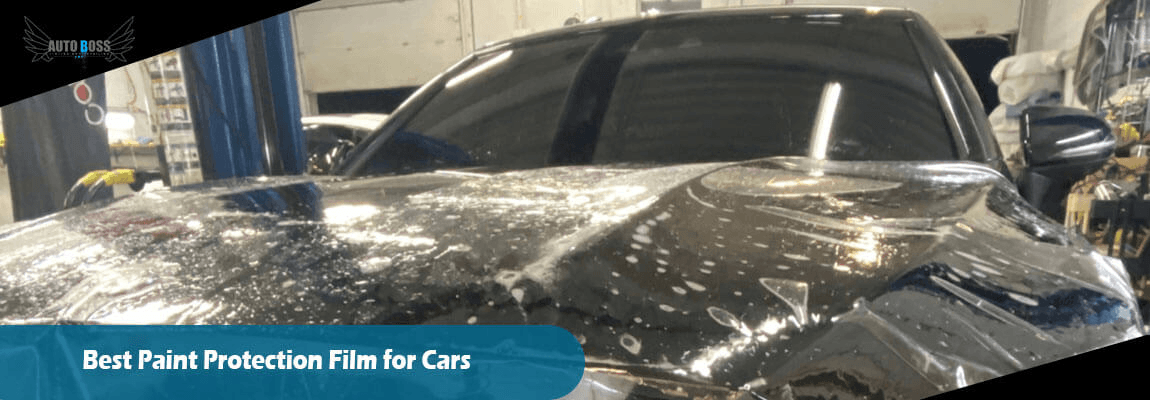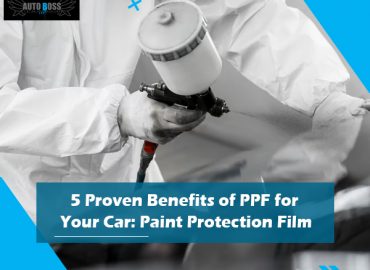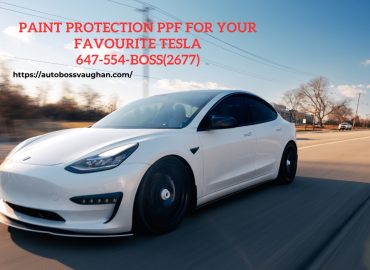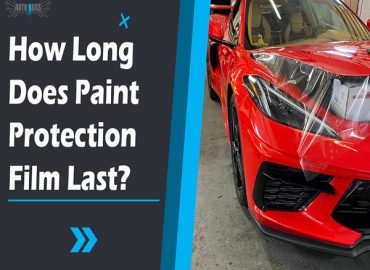Paint protection film (PPF) is a clear film spread on a vehicle’s surface to shield its paint from many things that can damage its appearance, such as scrapes, UV rays, road debris, stone chips, and bird droppings.
High-quality protection films are made up of four layers:
- Polyester release liner, which is about 3ml in thickness. It’s the bottom layer that adheres to a car’s surface.
- Acrylic adhesive, about 6ml thick.
- Polyurethane, around 6ml thick. This layer strengthens and protects PPFs
- Clearcoat, approximately 0.5ml thick, is the top layer that keeps everything smooth and glossy.
The best PPFs have a warranty of 10+ years, a thickness level of 8ml or more, self-healing properties (light scratches or abrasions disappear with heat), and are used along with the ceramic coating.
The main polymer in protection films is urethane, a robust, versatile material. Weightlessness, elasticity, transparency, and heat resistance are among the many advantages of this material.
During the Vietnam War, the US military developed urethane technology to prevent helicopters from crashing from damaged rotor blades, save lives, choppers, and money. 3M worked with the military to develop the technology.
The usage of urethane film expanded to fighter jets later in the 1970s, and it has continued to expand for a wide range of applications ever since. It is still manufactured today.
If you are considering installing paint protection film, you will need an answer a few key questions, including:
- What to look for in a good PPF
- Advantages of Paint Protection Films
- Best PPF brands, which PPF is right for you?
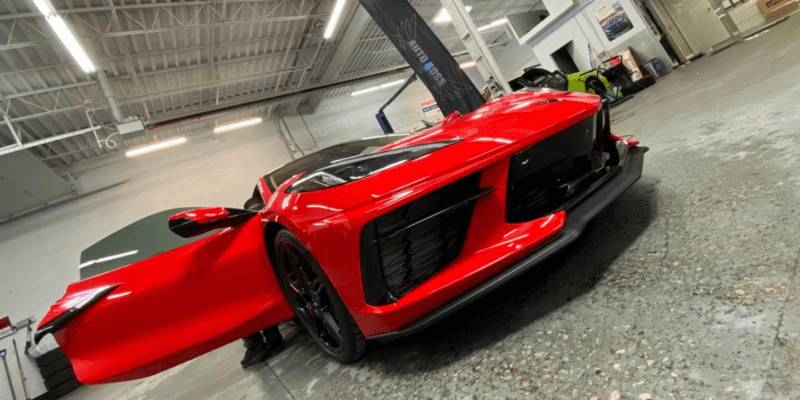
What to look for in a good PPF?
- The level of protection is high:
Besides protecting against UV damage, oil, bugs, rocks, dirt, flying debris, and scratches, the highest-quality films also provide the best barrier against heat, oil, and water. It is recommended to use a PPF of about 6ml for top-tier protection. Films with low quality are usually thinner.
- Transparency:
A paint protection film is designed to keep your paint looking new. It should not cover, change, or distort the paint. High-quality PPFS are crystal clear and retain their transparency for many years.
Previously, PPFs would turn yellow. But it was discovered that the adhesive, rather than the film itself, yellowed. As a result, manufacturers developed adhesives that are resistant to premature discoloration.
- Longevity:
In most cases, industrial guarantees back the best films. XPEL Ultimate, for instance, is warranted for 10 years after installation and uses Edge Seal Technology to prevent peeling or flaking.
Films installed professionally generally perform well over the course of a decade when properly maintained.
- Self-healing ability:
I’m sure it sounds like something from the future. Self-healing paint protection films are the future. By applying a little heat to the film, minor scratches, scuffs, and even spray paint will disappear.
The heat causes the protection films to return to a low-energy state, making their appearance smooth and seamless. After applying heat, spray paint and other unwanted substances completely wipe off the film, revealing the flawless finish.
Advantages of Paint Protection Films
- Offers protection from scratches caused by rocks and stone chips and keeps your car looking brand new
- Transparent and provides an ultra-smooth finish, making your vehicle look aesthetic
- Improves car appearance with its high-gloss durability and shiny appearance
- Helps vehicles retain their original paintwork, increasing their resale value
- Cost-effective as it lessens the amount of damage done to your vehicle
- Protects car’s integrity by blocking damage from scratches, UV rays, road debris, stone chips, and bird droppings
- Paint Protection Film is easy to remove
Which PPF is right for you?
Many companies and brands make paint protection films, but they are all built differently. In fact, the most popular PPF brands are 3M, XPEL, SunTek, Karlor’s, and VViViD. However, the first two are superior.
3M has been in the industry for the longest and is the largest, but XPEL exclusively manufactures paint protection films and has earned a stellar reputation with its products.
The XPEL-developed software package allows installers to access hundreds of templates, making it possible for experts to apply film without cutting paint surfaces. 3M has developed its own software. The two companies offer a matte and gloss finish for paint protection films. XPEL films carry a ten-year warranty, while 3M films carry a seven-year warranty.
Contact Auto Boss Vaughan for installations of PPF in Vuaghan, professionally and effectively. Call our support team at 647-554-2677 or book a quote on the Auto Boss Vaughan website.

